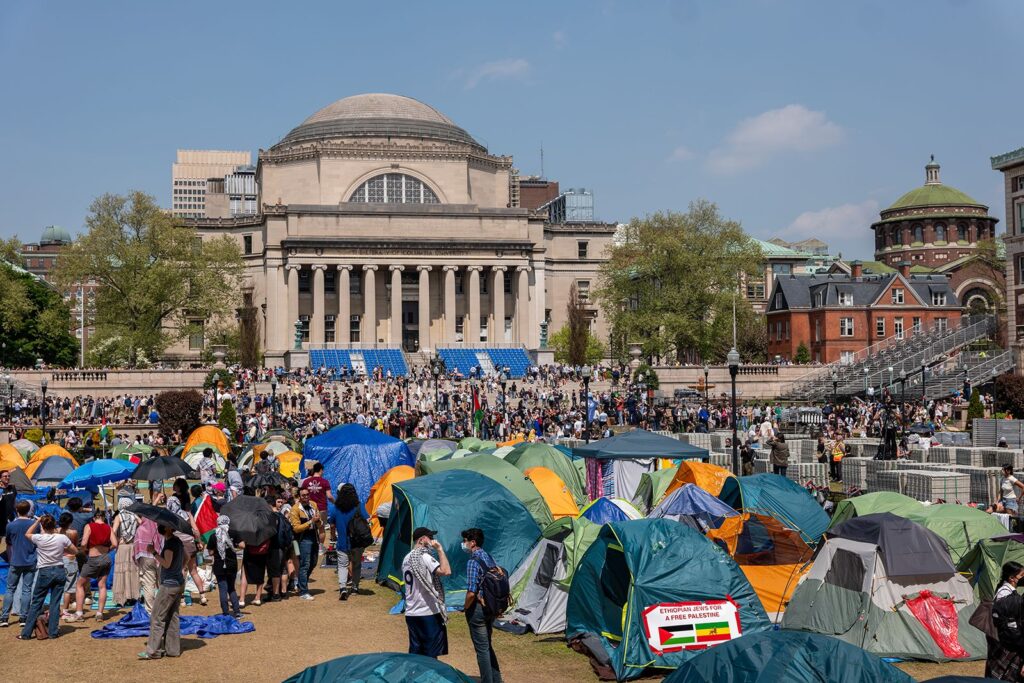At Columbia University, which has long borne witness to protests and dissent, the atmosphere has shifted under a new regime of policy changes ostensibly aimed at heightening security,with more than a dozen students and faculty.
most of whom requested to remain anonymous for fear of reprisals – described a tense mood on campus as the changes take hold.
The atmosphere is far from what Maria, a master’s student at Columbia whose name has been changed to protect her identity, imagined when she enrolled last spring.
“I put my money down for Columbia thinking that I would be going to a prestigious university known as a protest university, home of some of the largest human rights student movements in the country. But then two days later, the (pro-Palestinian protest) encampment started and NYPD came onto campus,”
The Manhattan campus has become the reluctant poster child for President Donald Trump’s actions aimed at higher education. The administration has wielded its immigration authority to cancel the visas of hundreds of international students and visitors in the US and used the power of the purse to push for sweeping policy changes on campuses. Federal officials argue the moves are meant to combat antisemitism and bolster national security.
Universities – especially elite institutions – have for decades billed themselves as champions of free speech, and for many students and faculty, the stakes of the current controversy extend far beyond partisan politics – it’s about safeguarding the core values of free expression and the right to dissent. Many of those who spoke with CNN expressed optimism that a new wave of activism to protect those values may be building in response to the atmosphere of fear created by the president’s crackdown.
Maria told CNN that, to her, the administration’s actions convey a clear message: “Dissent is not a viable form of social participation in our country.”
Columbia is not alone in coming under pressure. In just the past week, the Trump administration suspended $210 million in research grants to Princeton University and announced reviews of $510 million in funding for Brown University and $9 billion for Harvard University. In recent months, the administration said it was investigating 10 schools for their handling of reports of antisemitism since 2023 and more than 50 for their Diversity, Equity and Inclusion (DEI) programs.
“The Trump administration may have started by singling out Columbia, but we’re under no illusions that all universities – particularly elite universities – have targets on their backs,” said Kim Lane Scheppele, a professor of sociology and international affairs at Princeton.


